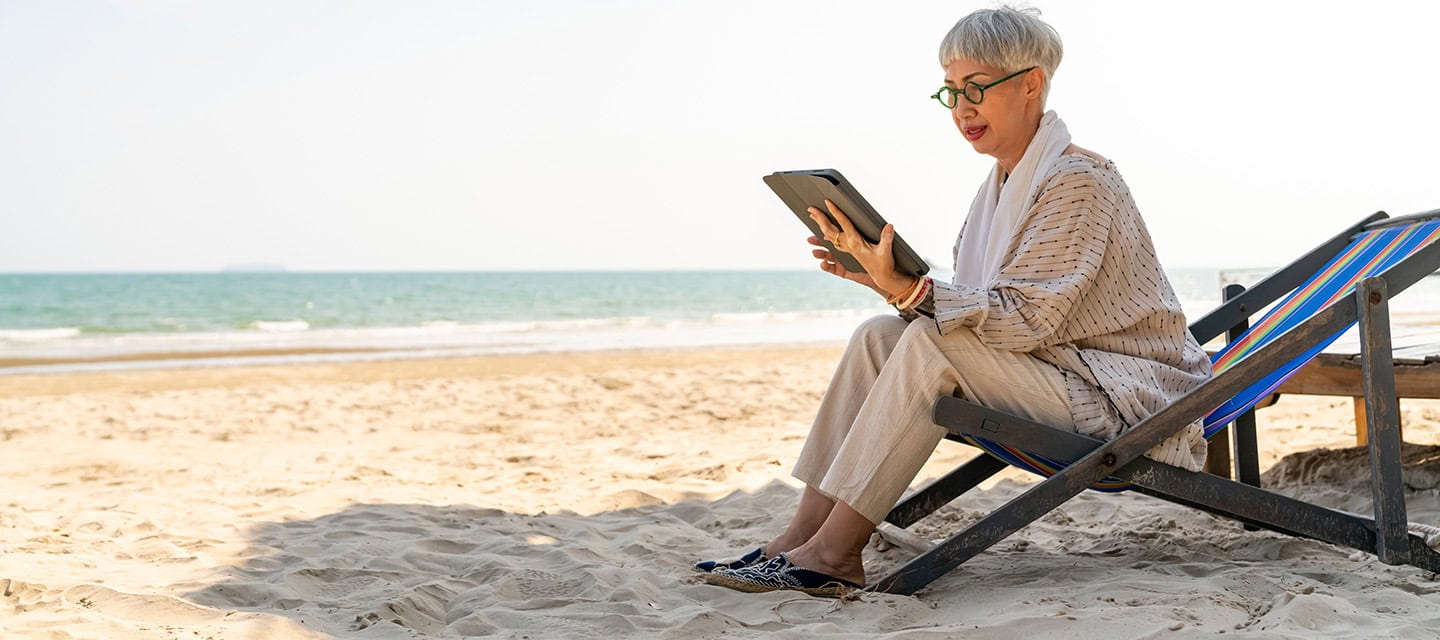

There’s something about setting off on holiday that puts most of us on high alert. As soon as we’re out of a familiar routine or location, there’s so much more to juggle, remember and think about. In these situations, it’s no wonder things can get lost, damaged or stolen.
Here are a few things that could help keep your valuables safe on holiday.
Part of the fun of heading off on holiday is getting ready for it. Sure, there are outfits to choose and new books to pack, but thorough holiday admin should be on your list too.
Once you’ve got your passport and travel documents gathered, here are some pointers on what to do next:
However you’re getting to your destination, being organised is the best way to make sure everything gets there with you. Knowing your route and checking the next stage of the journey while on the current one will help you glide through the crowds at train stations or airports.
If there’s any paperwork you need on the way, have it in a folder and easily to hand so you’re not having to rummage in the depths of a bag. Just a few reminders on a Post-It note with times and coach numbers might be enough to make things go more smoothly.
Not only are distracted travellers prime targets for opportunistic thieves and pickpockets, but they can also be forgetful and clumsy, so more prone to leaving something behind or dropping a phone.
Take a moment on arrival to get your boarding cards and passports together. Leave nothing essential in your hold luggage. If your flight is full, you might be asked if you want to check in your hand luggage too.
Make a point of always having a lock on your hand luggage so it can be safely stowed if you decide to put it in the hold (perhaps a safer option to choose on the way back rather than the way out). Remove your valuables, putting them in a handbag or whatever you’ve taken to go under your seat – or in a travelling companion’s cabin bag.
Don’t rush at security. Keep your jewellery on rather than suddenly deciding at the last minute to put a ring in a coat pocket or loose in the tray. If you want to remove jewellery, take a small bag (or use one of the plastic ones provided for liquids) or box to put bits in that can then go in your hand luggage for scanning.
With all your bags locked and secure, it’s time to sit back and enjoy the journey. If you’re in transit for a while you might end up stuffing things in all sorts of places while you juggle being in a small space.
On arrival, carefully check where you’ve been sitting, especially the seat pocket, so paperwork and gadgets remain with you.
When you’re collecting your hold luggage, hopefully you would have made it easy to spot by adding a colourful strap or locking band – it’ll also make it clear to other travellers your plain grey or black suitcase is not theirs.
As well as having a distinctive luggage tag with your contact and destination details, put a copy inside your luggage or zipped outer pocket in case the tag gets detached (airlines and lost property office often look inside to check for identification).
It’s not a bad idea to take a quick snap of your bags before you set off to give to airlines in case your baggage gets lost along the way.
If you’re at a hotel, you’ll likely have a safe in the wardrobe. It may seem inconvenient to use it, but it’s a good habit to get into. Practice with it empty so you’re familiar with how it works. Use it to store your passports, tickets, cash, home keys and other valuables. Feel into all the corners when you check out to make sure nothing’s left behind.
If there’s no safe in your room, ask if there is a hotel safe for guest valuables. Also, if your room has a traditional key with a fob with the hotel name and your room number on it, leave it at reception when you go out for the day.
If you’re enjoying the atmosphere of a city break or heading to a tourist attraction, there are a few things you can do to minimise being parted from your valuables because of loss, theft or damage.
Leave as much in your room as possible. Some countries want you to carry some form of ID, but you could take a photo of it on your phone or a print-out and present the real document later.
Keep your bag on your front with the strap across you or have your backpack as a ‘chest pack’ so nothing is behind you. You could get a neck or wrist strap for your phone, so it won’t drop to the floor while your hands are full holding an ice cream or map.
Bought fancy sunglasses in duty free? Keep them in a solid case so they don’t get squashed hidden under a towel and get a neck chain or cord so they don’t get left behind anywhere.
On the beach, there may be sunbeds with a locker attached so you can stash your valuables while you go for a dip. You could always get a portable safe which is a small sturdy lockable case with a bike cable to lash it to something secure. Most thieves are quick and opportunistic, so something like that will make them look for a far easier target.
If you’re going to be on the beach or lounging by the pool a lot on your holiday, getting a waterproof pouch for your phone, tablet or e-reader is a good idea.
Even being as careful as possible, accidents happen. Your travel insurance is likely to include cover for lost, damaged or stolen personal items as part of the baggage section. Check the maximum amounts your policy will pay out for single items as well as the total for valuables.
If you have any specified items of jewellery listed on your home policy, they may well be insured for ‘all risks’, including holiday travel.
Michelle Cooper, Director of Travel Insurance adds: "Travel insurance provides cover for the theft or loss of valuables such as passports, money, and jewellery. However, there are limits on how much you can claim, and certain conditions apply.
"For example, insurers expect travellers to take reasonable precautions, such as using hotel safes and keeping valuables secure while out and about. Holidaymakers may also benefit from checking their home insurance policy as they may find they’re covered for certain items when away from home, especially if they have specified high value items such as watches and jewellery.
"If your passport is lost or stolen, your policy may help cover the cost of obtaining emergency travel documents so you can continue your journey with minimal disruption. As always, it’s important to check your policy details to understand the level of cover provided."
There are many reasons why you should get travel insurance – from the moment you book your holiday, in fact. Saga Travel Insurance includes cover for lost, damaged or stolen baggage. As there’s a range of options, you can choose what’s right for you, with single article limits from £400 with a Saga Essential single trip policy to £1,250 on a Saga Plus annual multi-trip one.
It’s good to know if you need to replace something urgently on holiday, Saga Travel Insurance can have the money in your account the same day for some claims if they’re approved by 4pm UK time.
If you need to make a claim for lost baggage, here’s how to handle your claim and what you need to do.
Check your home insurance as you might find it includes cover for personal belongings wherever you are in the world – for example, with Saga's home insurance this cover comes included as standard with Saga Plus up to £2,500 per item and £10,000 per claim, or as an optional extra with Saga Select.
Cover that's with you all the way. Over 50? Get a quote today!


Booked your trip and thinking about travel insurance? When you're looking to compare travel insurance, don't settle for less.
There's plenty to explore and learn about our travel insurance cover.

Protect your valuables when you’re out and about with personal belongings insurance. Find out more about what it covers.
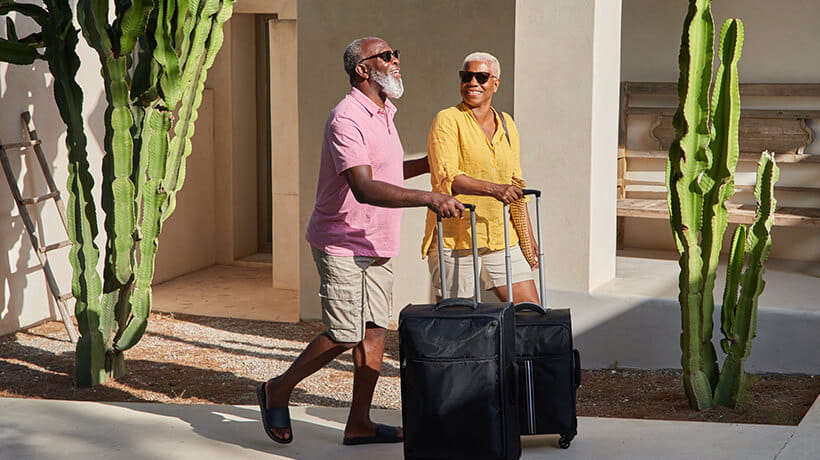
If you’re wondering whether you really need cover for your next trip, our guide to dealing with medical problems abroad may help.

Being organised for your holiday means you can make the most of your time away. Check out our guide.
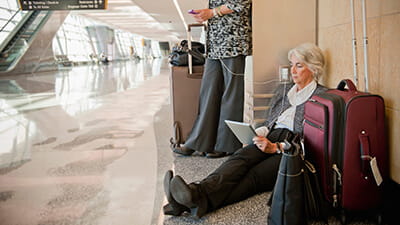
See how travel insurance might be able to help with delayed and cancelled flights.
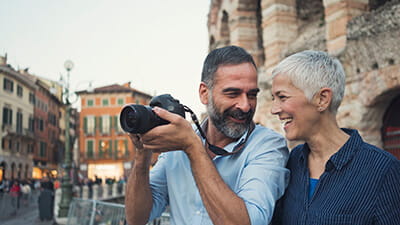
Want to know more about Saga Travel Insurance? Here are the answers to the questions we're asked most often.

All Saga Travel Insurance policies provide cover for cruises including some benefits specific to cruise-goers. Saga Plus has two new cruise specific features Cruise Missed Port and Cruise Interruption cover.

We automatically include cover as standard for a range of popular leisure activities.
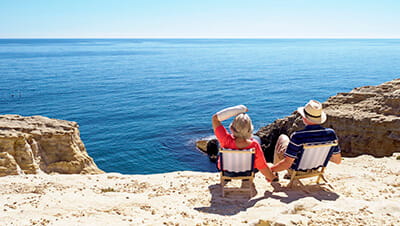
Our team are here to help, with medical expertise and a personal touch. Find out about medical claims with Saga Travel Insurance.

Protect your plans, your health and your belongings with a well-chosen travel insurance policy.
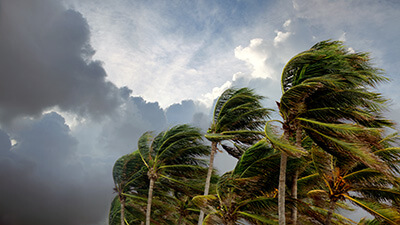
Saga Travel Insurance includes cover for a number of different unpredictable situations, reimbursing costs that are irrecoverable elsewhere.

Our travel insurance policies have no upper age limit, so if you're aged over 70 and looking for high levels of cover and service, why not try Saga?

We cover most pre-existing conditions, have no upper age limit and are there for you in a medical emergency.
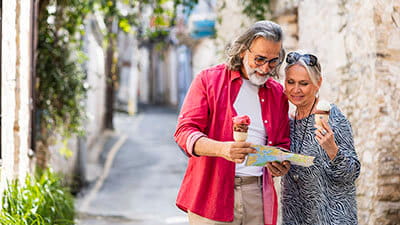
Got a cardiac condition but still love holidays? Find out why it’s vital to get the right travel insurance.